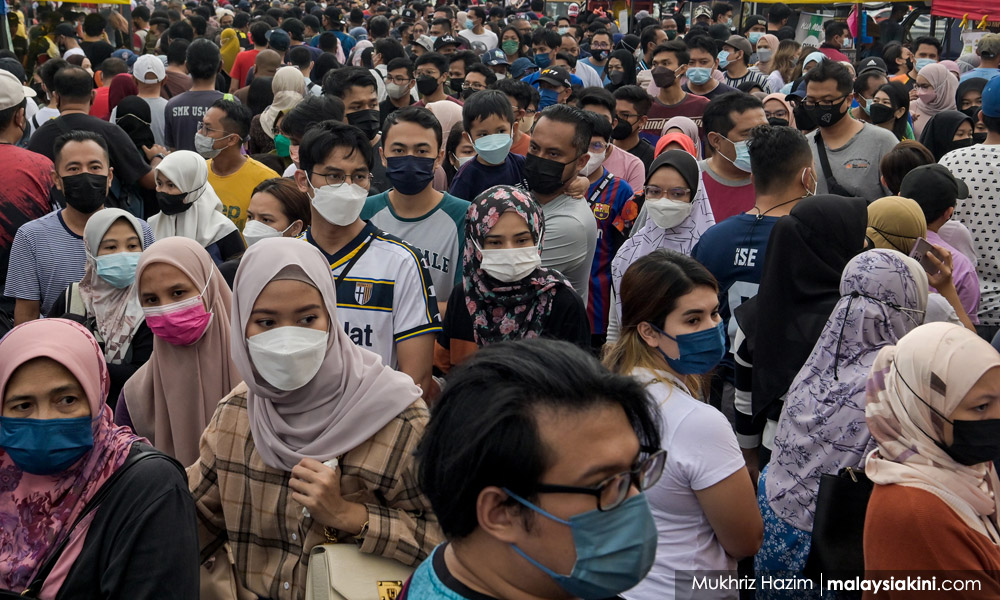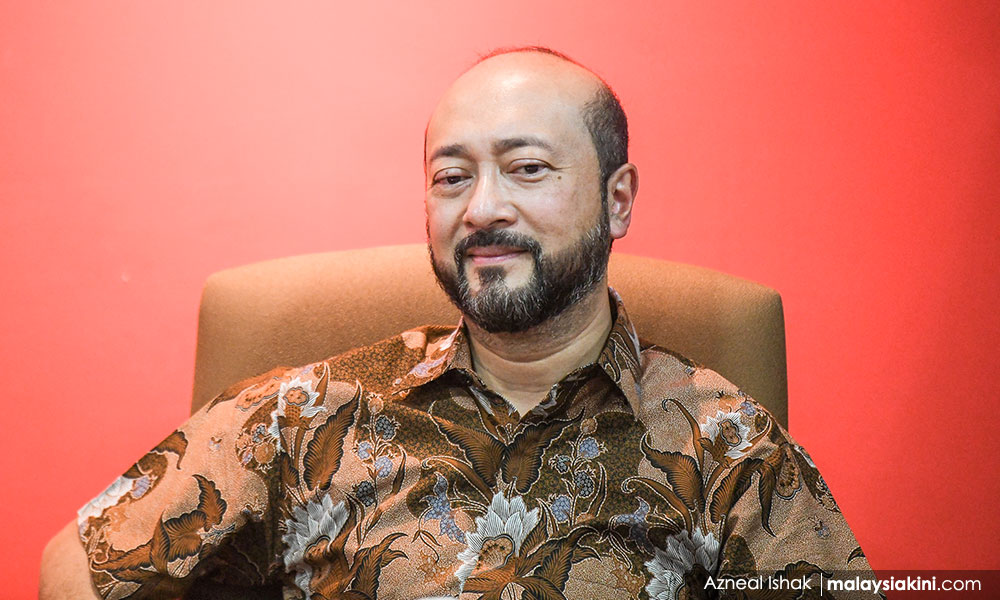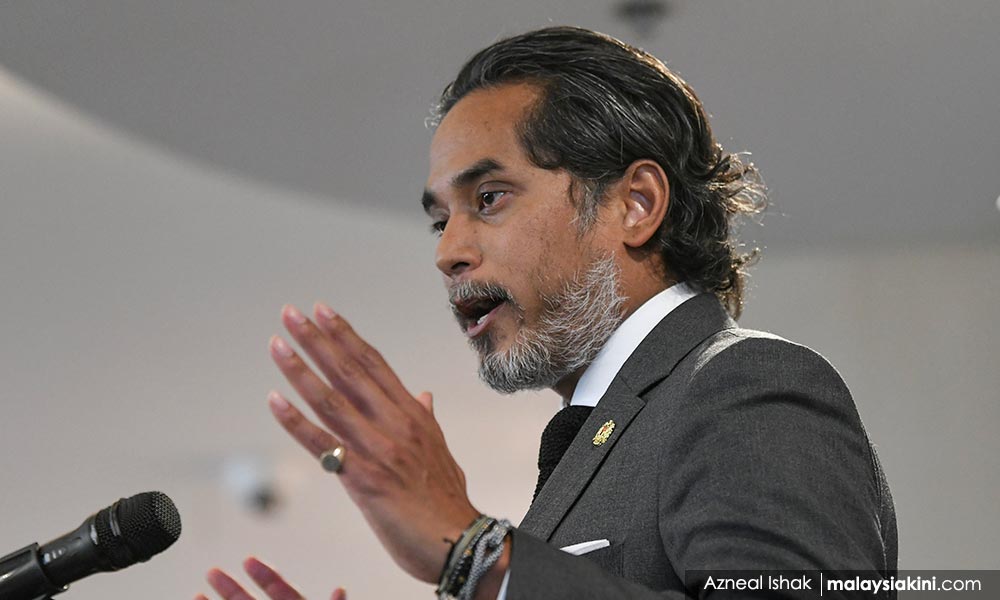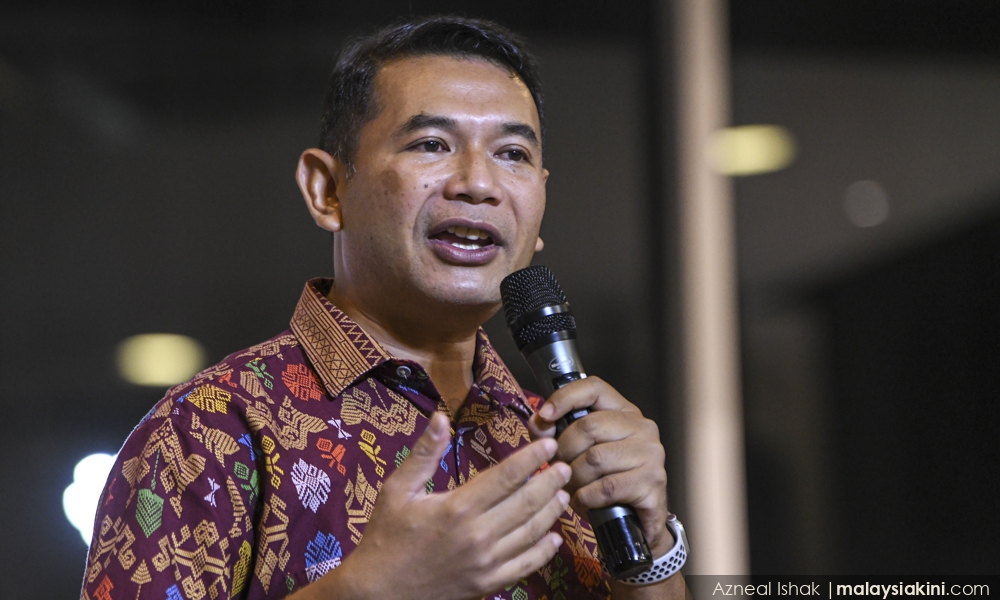"After selling and getting the cash, they come back to ask for more."
– Former two-time prime minister Dr Mahathir Mohamad on the Malay polity.
Bersatu Youth chief Wan Ahmad Fayhsal Wan Ahmad Kamal's public statement about identity politics in Malaysia is the usual statement made by the Malay uber alles crowd to rile up a specific section of the Pakatan Harapan base but does nothing to reshape Harapan’s political discourse.
While Ahmad Fayhsal (above) may claim he rejects the Malay feudal mentality and is merely stating a political truism, the reality is that the Malaysian political system and bureaucracy actively sustains such a mentality because it is the easiest way to sustain political power.
Parties like Umno, Bersatu, Pejuang, and PAS are Malay supremacist parties whose political currency is racism.
We also need to understand the supposed non-race-based and supposedly multiracial parties of Malaysia actually attempt to use the same currency to gain political power.
This includes aligning with race-based parties, the way Harapan did when it aligned with Mahathir and to a certain extent aligning with PAS under the late Nik Abdul Aziz Nik Mat as some sort of fig leaf of moderation.
While the ketuanan (supremacist) system is identity politics rooted in policy, something like the Bangsa Malaysia kool-aid is rooted in reactionary politics that deflects from any real change beyond consolidating the non-Malay vote.

We are not merely talking about identity politics as some sort of political shorthand for populist appeal but rather ideas and principles embedded in the Malaysian Constitution which in turn define policy.
These race-based provisions in the Constitution, misinterpreted purposefully, form the basis of the ketuanan state in which everybody participates.
Special privileges
Two points need to be made about Harapan's supposed liberal democratic nature and the fear of the Chinese-DAP narrative.
First, Harapan has never had a liberal democratic nature. The fact is, non-Malay politicians, whether the old guard or the new, are never going to talk about taking away the special privileges of the Malays.
They are never going to talk about making our taxpayer-funded public universities more inclusive, or about subsidies given to only Malays. That is the way the system has been built.
The second is that all this propaganda by the ketuanan state is designed to deflect from the failure of Malay uber alles parties. Perhaps, Pejuang president Mukhriz Mahathir said it best when he was Bersatu deputy president:

"Looking at Umno, when there were big issues which we could not address, we would talk about DAP, Chinese chauvinism, and how Lim Kit Siang becoming prime minister would destroy Malaysia, that the Malays would disappear, and the mosques can no longer air the azan.
"I admit that I too have said such things, in front of a 100 percent Malay audience. Thinking back, I feel guilty and a sense of regret."
So right now, the establishment is having to deal with issues they cannot address hence the need for various political operatives to muddy the discourse, with everyone engaging in identity politics and not asking themselves the hard questions.
This is the distraction. What does this distraction entail? This means essays about how the Malays do not need protection and anecdotes about “Malays” who can stand on their own feet.
This also means lip service to “liberal concepts” like egalitarianism and inclusivity without considering the reality that the mainstream political system is predicated on ensuring so-called Malay rights and religious preoccupations continue for political gain.
Reinforcing mainstream ideologies
This is why non-Malay Harapan political operatives were comfortable propping up their Malay partners and reinforcing certain mainstream ideologies over their coalition’s manifesto.
In a nutshell, mainstream Malaysian politics – for non-Malay politicians – is to enable and sustain the voting base of their Malay colleagues, which makes it rather difficult for ideas and policies which could save Malaysia to be considered.
To understand this dynamic, go back to the discussion in Parliament in 2018 when there were moves to sign the unratified International Convention on the Elimination of All Forms of Racial Discrimination (Icerd).
Rembau MP Khairy Jamaluddin wondered, “Are you saying that Article 153, which clearly gives special status to one group of people, must have a time limit?”

This is why Perak DAP vice-chairperson Abdul Aziz Bari says, "The rights of the Malays will not be marginalised even if there are a low number of Malays in the party."
This is because these so-called rights will never be challenged no matter how racially divisive they are and it really does not matter how many Malays are in the DAP or how they are marginalised by voting members.
In other words, political parties do not have the political will to confront the racist system.
Pavlovian response
Harapan political operatives always define the ketuanan system as Umno which is misleading. PKR vice-president Rafizi Ramli makes the same mistake when he disagrees with the identity politics peddled by the Bersatu Youth chief.
Rafizi said, “Voters who reject Umno’s track record of corruption don’t mind giving Bersatu and PN a protest vote… It is precisely because Malay voters are a lot more sophisticated that Harapan must work its narratives to convince voters it has solutions and competence to resolve the key economic issues the people are facing.”
This, however, does not demonstrate the sophistication of the voters who switched their votes to Bersatu and Perikatan Nasional (PN) instead of Umno.

Why did they switch their votes? Because they understood Bersatu and PN are part of the ketuanan system which would protect them from everything they were taught to be afraid of.
So there is very little sophistication here. It is more a Pavlovian response. Those who switched their votes understand as long as they vote establishment, they cannot go far wrong.
The fact that they don’t understand Harapan is part of the establishment is indicative of the success of the propaganda and institutionalised racism of this country, which is damaging because when the time comes for mutual cooperation, that well has been poisoned.
Now, I am not saying that Rafizi’s point of recalibrating the message and policy is not welcome, but rather there is no real alternative to accurately judge how far the Malay polity is willing to go in favour of a different model of governance.
All this is merely theatre for political operatives who either want to keep the game going or those who do not want to offer another kind of game. Do not be fooled. - Mkini
S THAYAPARAN is Commander (Rtd) of the Royal Malaysian Navy. Fīat jūstitia ruat cælum - “Let justice be done though the heavens fall.”
The views expressed here are those of the author/contributor and do not necessarily represent the views of MMKtT.



No comments:
Post a Comment
Note: Only a member of this blog may post a comment.